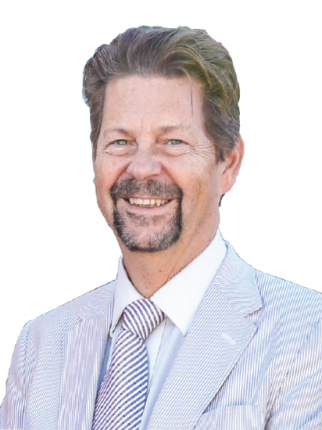
Gerry Turcotte
Always the right time to give thanks
“Every day is Thanksgiving. That’s what the Eucharist is for."
Jesus taught by repeating tautologies repeatedly
do not heap up empty phrases.
Matthew 6: 7
I recently emailed someone and assured them that I would provide a brief summary of the meeting we had attended. As soon as I hit send, I thought, isn’t a summary … brief? Indeed, aren’t summaries often called briefs? My daughter regularly claims something is an over-exaggeration. We don’t usually disagree on her main point, but always quarrel about the use of “over.” Isn’t an exaggeration already excessive? How can you over-exaggerate an exaggeration? Tautologies abound.
God is there for our photo finish
The age has lost its youth, and the times begin to grow old.
2 Esdras 14: 10
Recently my executive assistant pointed out that the photo I was using for my column was … out of date. Her diplomatic wording sounded more like: “You are waaaay older than you were when the photo was taken. You should change it. Truth in advertising.” It did force me to confront the reality of aging.
Olympic spirit outshone moments of disgrace
As a young man of 16, and a competitive high school gymnast, I was thrilled to get a job at the Montreal Olympics. Organizers were desperate for staff, so I was put in the bar stand at the basketball arena, an under-aged kid blissfully selling beer to thirsty patrons.
Paring apart the pairings of saints
You will know them by their fruits.
Matthew 7: 16
I have often been fascinated by iconic pairings — how one person or one thing can be inextricably linked to another. Batman and Robin roll off the tongue, a pairing as natural as brie and crackers. Pisa and the leaning tower, Rome and the Vatican, are equally symbiotic. Advertising often depends on this or works hard to create the pairing, so that, for a time, Nike and Michael Jordan were synonymous, and Air Jordans were everywhere.
A voice that brought angels to tears
Do not interrupt the music.
Sirach 32: 3
I don’t like to brag, but I was a member of my school’s award-winning choir when I was young. I sang alto and bass though admittedly, because of puberty, it was usually during the same note. Sr. Thibeault, our choir director, begged me to join … any other club but hers. I thought she was only playing hard to get. She had famously claimed she could teach anyone to sing, and tearfully admitted she was wrong after she heard me.
New mace marks going forward together
Take in your hand this staff, with which you shall perform the signs.
Exodus: 14: 17
There is nothing quite so spectacular as a well-executed ceremony, replete with fanfare and ritual. This is arguably why we marvel at coronations even if we aren’t royalists and watch starry-eyed at award ceremonies even if we secretly feel they are testaments to vanity. Ceremonial rituals, however, sometimes point to moments of deep historical importance, and at such times we do well to pause and pay homage. A flag at half-mast, an award of valour, the sign of the Cross. So it is with symbolic objects that capture not just the splendour of the moment, but a long-term history that gives meaning to what they represents. The mace is one such object.
Opening our hearts to God's magical world
the delusions of their magic art lay humbled.
Wisdom of Solomon: 17:7
The words ‘magic’ and ‘magicians’ are mentioned just over 20 times in the Bible and generally describe an act of illusion for purposes of deception rather than entertainment, or an act of sorcery. In our day, however, magic is understood to be a largely joyful piece of foolery, meant to entertain by sleight of hand or some sort of misdirection. Another phrase that I knew of, but largely in a negative context, was the concept of sympathetic magic.
Life of the spirit is habitual change
I am about to do a new thing.
Isaiah 43: 19
When I accepted the position of President of St. Mary’s University in Calgary, I had to convince my family that it was exciting to give up our life on the beach and move to a glorious mountainous winter wonderland. I must have been convincing because they immediately agreed. But when we left Sydney, Australia, at 40 degrees, and landed in Calgary at -40 degrees, my daughter looked at me sternly: “This is child abuse!”
Looking down on the virtual world
Do you understand what you are reading?
Acts: 8: 30
The art of reading is rapidly disappearing. According to a study by the National Endowment for the Arts, nearly “half of all Americans ages 18 to 24 read no books for pleasure.” Even more alarming given my line of work, “College attendance no longer guarantees active reading habits.”

